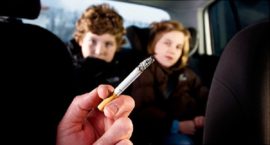via verywell family: Let’s be clear: I love coffee as much as the next busy parent with little kids and a job, but I am a fully-functioning adult who is responsible and able to recognize when my caffeine consumption habits are veering off into dangerous territories. Toddlers are not able to do this.
Believe it or not, toddlers are the latest group of individuals to join in the coffee craze. According to a 2015 study by the Boston Medical Center, 15 percent of toddlers consume about four ounces of coffee every single day. That’s half a cup, which is not an insignificant amount for a child of that age and size. The study found that 2.5 percent of one-year-olds were drinking coffee and that number increased by the age of two. But, can toddlers drink coffee?
Why Are Toddlers Drinking More Coffee?
There are several factors at play.
Parental ethnicity, especially maternal, plays a large role in coffee consumption in young children. Compared to children from Hispanic and Mexican-American families, children from white families are more likely to have coffee every day. Also, the American Academy of Pediatrics (AAP) found that higher-income children are more likely to drink caffeine than children from families at or below the poverty threshold.
In the Boston study in particular, however, Hispanic families were more likely to give their toddlers a coffee drink every day. Boston has a high population of Hispanic families. Researchers learned that these families simply saw no reason to exclude toddlers from the coffee-drinking tradition that started. Interestingly enough, female toddlers and infants were more likely than male toddlers to have coffee every day.
Accessibility may also play a role. Toddlers are more likely to see coffee around the house or in their parents’ hands these days. They want to be “just like Mom” or “just like Dad” and sip their morning cup of joe. Toddlers learn about the world from the adults around them, so it makes sense that they may be curious about coffee if it’s a daily habit in their caregivers’ lives.
Effects of Drinking Coffee in Children
In 2014, the AAP put together a special task force to address the rising consumption of caffeine in children. In their special report, they noted that 73 percent of American children drink some form of caffeine every single day. The most common sources included soda drinks. Coffee drinks came in second—between 2009 and 2010, approximately one-quarter of caffeine consumed by children came from coffee. Energy drinks came in third and their consumption is also on the rise. Tea was also especially common in young children starting around the age of two.
So far, the AAP has not specifically set guidelines for caffeine in children, although they do recommend that children under the age of 12 not have caffeine of any kind. This recommendation came after the rise of energy drink consumption, especially among teenagers. Other studies have found coffee and caffeine consumption, paired with other lifestyle habits, may lead to negative outcomes such as:
- Depression
- Type 1 diabetes
- Sleep disruptions
- Substance abuse
- Obesity
- Anxiety
- Elevated heart rate
- Blood pressure changes
- Nervousness
- Stomach problems
- Diarrhea
- Difficulty concentrating
- Vomiting
- Restlessness
- Frequent urination
- Dehydration
In toddlers especially, two-year-olds who drank coffee or tea between their meals actually had triple the odds of being obese by the time they were in kindergarten. Extremely high doses of caffeine can cause both seizures and cardiac arrest, which can lead to death. And obviously, children, especially toddlers, are more at risk to experience negative health outcomes of caffeine since they have less body mass and their bodies are not as adept at processing the caffeine.
The biggest and most unknown risk to consider is that scientists simply don’t know what the long-term effects of caffeine are on a developing brain, especially in the toddler years, when so much growth and development is happening. It may be apparent immediately that a cup of coffee in a two-year-old causes him or her to have lots of extra energy, but what happens to a toddler’s brain if he or she is drinking that same cup of coffee every day for years? It’s hard to say what the long-term consequences might be.
What You Can Do
Overall, the rising trend of children drinking coffee and caffeine reflects how many Americans view caffeine as something that is “normal” and without risk. The truth is, caffeine is a powerful drug and stimulant and despite its widespread availability and use, should be treated as such. A caffeine addiction is still an addiction.
Is one sip of coffee going to mean a lifetime of negative health consequences for your toddler? No, probably not. But a daily habit of coffee or tea could be something that may harm your toddler’s health. If you are starting your little one on a habit of drinking coffee or tea every single day, you may want to speak to your doctor about the potential impact on your child’s development.
It’s also important to talk to your child about healthy caffeine habits, especially if caffeine is frequent in your home. Talk to your child about why coffee might not be a healthy choice for them, check labels of drinks or foods that might contain caffeine, and if you want your child to partake in a family tradition of drinking a hot cup of coffee together, consider fixing a special drink that does not contain caffeine. For example, you may steam milk, stir up some hot chocolate, or consider an herbal tea instead of serving them up a cup of joe.
The Takeaway
Although much is still unknown, if you’re wondering when a “safer” age to give your child caffeine might be, the AAP suggests that you wait until the age of 12 and then limit your child’s caffeine consumption to no more than 100 milligrams of caffeine a day, which is typical for a cup of home-brewed coffee. Just look out for coffee shop varieties, as they may have a lot more caffeine in them!






